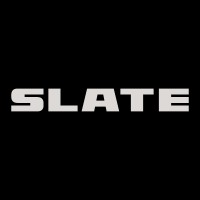
Back to jobs
Vehicle Planning and EE Lab Support Engineer
ABOUT Slate
Slate is a new US company that is exploring development in the electric vehicle space.
Who we are looking for:
Slate is looking for an energetic, organized engineer to develop vehicle level test plans for prototype vehicles, coordinate the vehicles for test and provide engineering support for the Electronics Lab.
Applicants must be authorized to work for any employer in the U.S. We are unable to financially sponsor or take over sponsorship of an employment Visa for this opportunity currently
What you get to do:
- Planning and Fleet Management
- Plan and coordinate test vehicle usage among all groups and minimize test fleet size
- Maintain vehicle build plans and schedules
- Manage and track development vehicle fleet updates
- Coordinate and track DVP&R and DFMEA status
- Electrical Lab support
- Assist in debugging and root causing vehicle electrical issues
- Specify and oversee CAN data loggers for development vehicles
- Specify and oversee vehicle instrumentation and data acquisition systems
- Support electrical lab technicians
- Write custom scripts and program data loggers and instrumentation
- Develop specialty instrumentation to support vehicle development work
What you bring to the team:
- Bachelor of Science Degree in Mechanical Engineering, Electrical or equivalent from an ABET accredited or equivalent program.
- 5 - 8 years of experience in an engineering related role with vehicle development capability preferred.
- Extensive experience with vehicle electrical system issue root cause and debugging
- Good understanding of automotive CAN bus communication systems
- Experience setting up CAN data loggers
- Experience setting up and installing vehicle installation and data acquisition systems
- Experience developing and building specialty or unique vehicle instrumentation
- Test planning and coordination experience
- Vehicle fleet management experience
- Excellent communication Team building and relationship building skills.
- Ability to lead teams and meetings through technical tradeoffs and optimized solutions with attention to detail.
- Broad vehicle technical and vehicle development process knowledge including how to set technical targets, work with teams to determine feasibility (virtually and physically) and validate with statistical confidence.
- Functional experience with NHTSA/FMVSS, CARB, EPA requirements.
- Design Release Engineering experience preferred but not required
We want to work with people that reflect the communities in which we operate:
- Slate is proud to be an Equal Employment Opportunity and Affirmative Action employer. We do not discriminate based upon race, color, religion, gender, gender identity or expression, sexual orientation, national origin, genetics, disability, age, veteran status, marital status, parental status, cultural background, organizational level, work styles, tenure and life experiences. Or for any other reason.
- Slate is committed to providing reasonable accommodations for qualified individuals with disabilities in our job application procedures. If you need assistance or an accommodation due to a disability, you may contact us at recar-talent_acquisition@slate.auto or 813-468-7257.
Apply for this job
*
indicates a required field